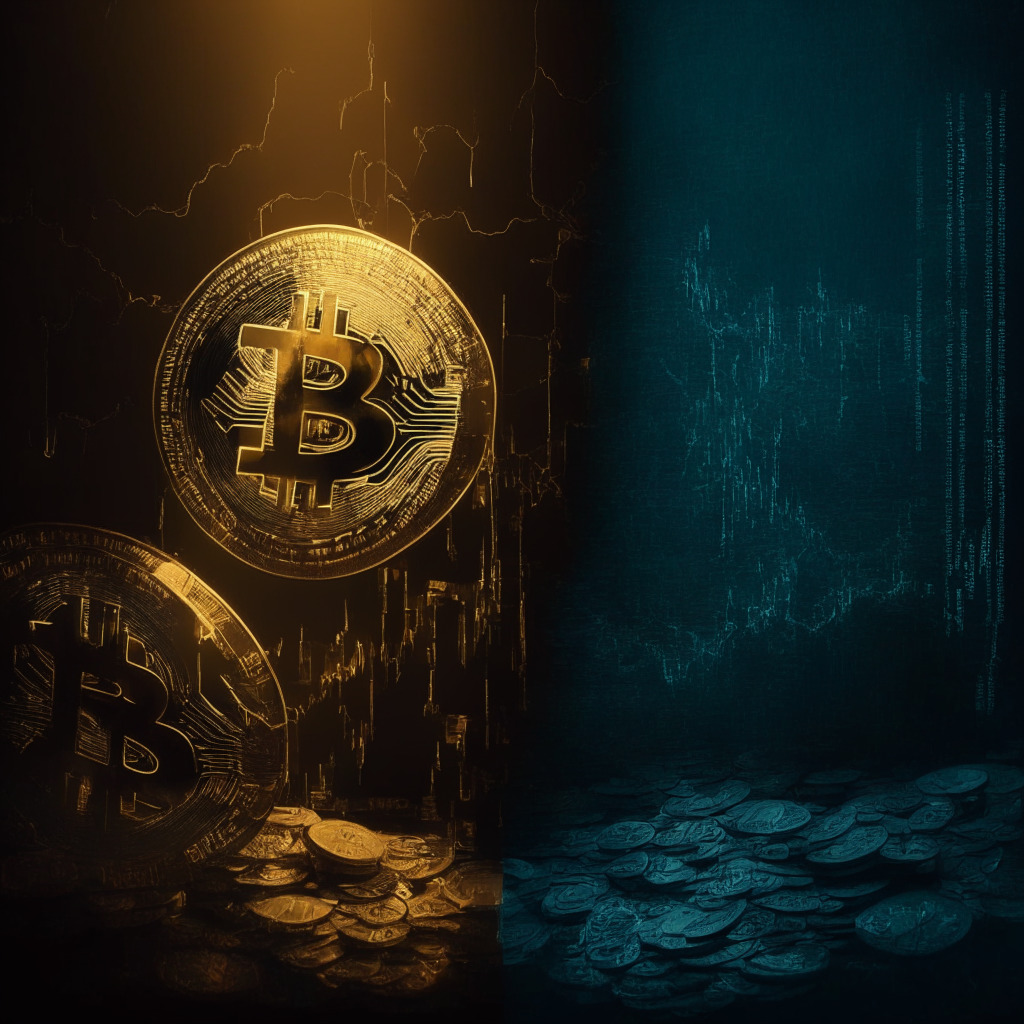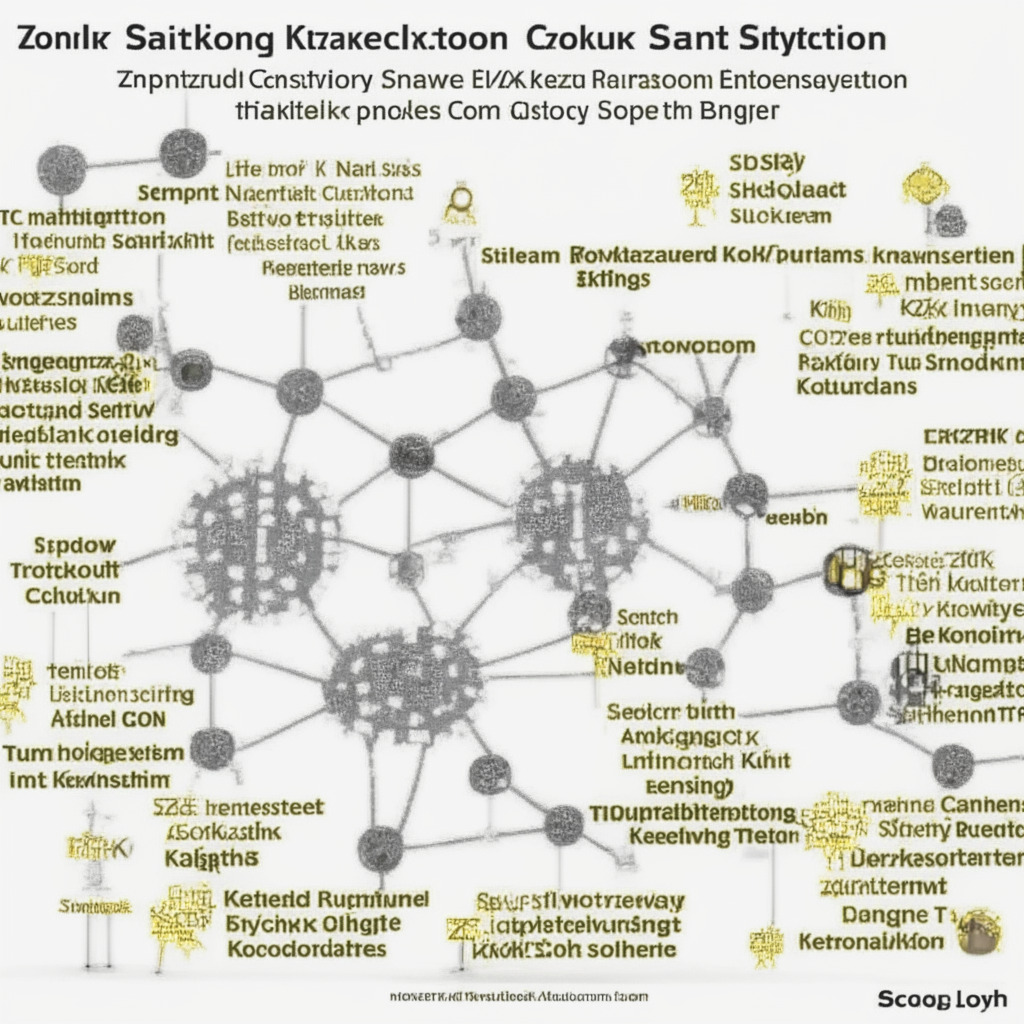New York Attorney General Letitia James secured $4.3 million from Coin Cafe, a Brooklyn-based digital currency service provider, for charging undisclosed, exorbitant fees for its “free” wallet storage services. This case highlights the importance of effective regulation in ensuring investor safety and combating deceptive marketing practices in the growing cryptocurrency industry.
Search Results for: Orbit
Decoupling of Bitcoin and Ether: Implications for Investors and the Crypto Market
The 30-day rolling correlation between Bitcoin and Ether has weakened to 77%, the lowest since 2021, suggesting a potential long-lasting change in their price relationship. Factors include Ethereum’s shift to Proof of Stake, diverging economic foundations, and the Shapella upgrade, causing Ether to emerge as a growth stock.
LG’s Blockchain Smart TVs: NFT Trading Revolution and Tech Giants’ Race to Dominate Web 3.0 Market
LG Electronics filed a patent for a blockchain-based smart TV, aiming to facilitate seamless NFT trading directly from the device. Users will connect their crypto wallets and an NFT market server, with transactions guided by onscreen QR codes. This innovation reflects the growing trend of tech companies, like LG and Samsung, exploring Web 3, Crypto, Blockchain, and Metaverse technologies to shape the future of technology.
Scaling Bitcoin With zk-Proofs: A Solution to Network Congestion and Transaction Fees?
The Bitcoin network faces congestion and increased transaction fees due to the demand for BRC-20 tokens. Zero-knowledge proofs (zk-proofs) may help address these issues by enhancing privacy, security, and blockchain capacity. Projects such as ZeroSync are exploring solutions like zkCoins to increase transaction throughput and improve network scalability.
Exploring Aevo’s On-Chain Altcoin Options: New Opportunities and Market Impact
Ribbon Finance’s decentralized exchange Aevo introduced options trading for alternative cryptocurrencies, allowing users to execute complex trading strategies and access instant quotes from crypto market makers. Aevo’s portfolio margin system enhances capital efficiency and offers valuable opportunity for traders focusing on smaller market cap tokens.
LG’s Blockchain-Based Smart TV: Revolutionizing NFT Trading or Exposing Users to Risks?
LG Electronics filed a patent application for its blockchain-based Smart TV, enabling users to trade NFTs by connecting to a crypto wallet and NFT market server. The move follows the launch of LG’s NFT platform, the LG Art Lab Marketplace, highlighting its commitment to integrating Web3 solutions into its products while raising concerns about consumer safety and wallet integration restrictions.
SEC Crackdown on Crypto Fraud: Protecting Investors or Stifling Innovation?
The SEC has targeted fraudulent websites offering high returns on crypto-related investments, aiming to eliminate bad actors in the industry. However, critics argue that the broad enforcement approach hurts legitimate businesses and could stifle innovation and growth in the crypto sector.
Soaring Bitcoin Fees: A Barrier to Adoption or Push Towards Lightning Network?
Bitcoin network fees reached a two-year high of $31.14 per transaction due to surging interest in NFT-like assets and increased network traffic, raising concerns about Bitcoin’s usability for everyday transactions. The Lightning Network offers a lower-fee alternative, but ongoing challenges lie in balancing transaction practicality against growing demand and usage.
Meme Coin Frenzy: Traders Risk High Fees for Quick Profits, But At What Cost?
Crypto traders are increasingly investing in newly-issued meme coins, risking inflated gas fees for potential substantial returns. This trend has led to alarmingly high fees on the Ethereum blockchain and raises concerns about the sustainability and impact on blockchain networks. As the market matures, promoting responsible and informed investments will be crucial for blockchain development and stability.
Bitcoin-Gold Hybrid Derivatives: A New Horizon for Stability Amid Economic Uncertainty
Orbit Markets partners with PI Digital to introduce the first bitcoin and gold hybrid derivative product, aiming to provide investors exposure to both gold and digital assets during macroeconomic uncertainty. This innovative product offers flexibility and showcases the promising future of finance.
Exploring the Ethereum Gas Fee Controversy: Success Signal or Growth Barrier?
A trader spent 64 Ether ($118,000) in gas fees to purchase $155,000 worth of memecoin Four (FOUR). This instance ignited a conversation in the crypto community regarding gas fees on the Ethereum network, with proponents citing revenue generation and deflationary pressure on Ether, while skeptics express concerns over efficiency and hindrance to smaller-scale projects.
Ethereum Gas Fee Surge: Impact on Users and the Pursuit of Solutions
The Ethereum network is facing rapidly increasing gas consumption, with the median price of ETH gas reaching a 12-month high and average transaction fees surging to around $50. Factors such as high trading activity involving memecoins, escalating demand for transaction processing, and increased NFT trading are contributing to this alarming increase, making simple transactions expensive and challenging for decentralized application developers, traders, and retail investors.
Decarbonice Project: Revolutionizing Energy Sector & PNE Token’s Potential Risks
The Decarbonice project aims to revolutionize renewable energy by decentralizing clean energy access; however, concerns about the viability of its native token, PNE, have arisen. Questions about tokenomics, deflationary approach, and navigating regulatory challenges call for careful investor consideration.












